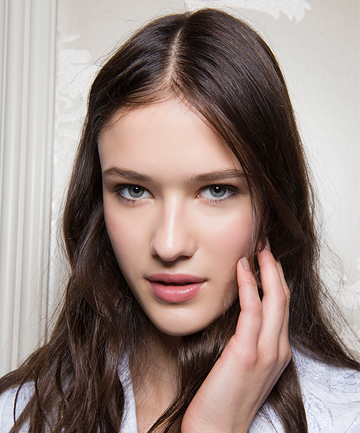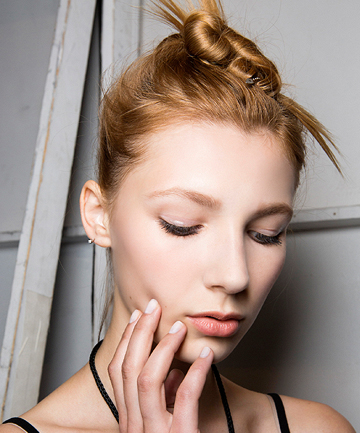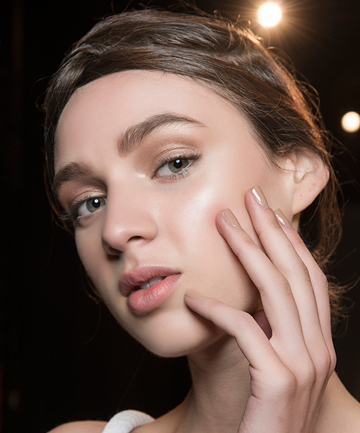Finding your skin to have newly uneven color is generally bad news, especially on your cheek area. This could be a sign that you're having a bad reaction to some ingredients that are meant to lighten your skin. It's called paradoxical hyperpigmentation which is related to chemicals that bleach the skin (such as hydroquinone and arbutin).
Once you notice new pigmentation popping up, be sure to abandon any product that contains these ingredients. Don't use any skin lightener until your skin color balance is restored. While you wait, coat your skin with sunscreen with at least SPF 30 (we like Kiehl's Activated Sun Protector 100% Mineral Sunscreen SPF 50, $29).
Image via Imaxtree
No, don't mistake it for having a hydrated skin: Your skin isn't supposed to be excessively oily when using a skin care product. In fact, this can even be a sign of dehydrated or overexfoliated skin. You see, strong oil-control products can dehydrate your skin, which in turn stimulates more oil production.
If this is a problem you're experiencing, try switching to products with water-boosting ingredients, such as the Innisfree Intensive Hydrating Serum With Green Tea Seed, $27. This way, you can increase water content in the epidermis while keeping your skin soft and and your sebum production in check.
Image via Imaxtree
You'll know when your skin is dehydrated when you notice fine lines, cracking and flaking. Experiencing these with your routine can mean that some of the products you are using are too harsh for your skin, which can sometimes be the case with ingredients like retinols and certain exfoliating acids. They are not necessarily bad to your skin, so you don't have to avoid them forever — but definitely try babying your skin for a while with something gentle like Simple Kind to Skin Protecting Light Moisturizer SPF 15, $9.99, if you notice your skin looking extra dry and flaky.
Image via Imaxtree
This one's kind of a no-brainer: If you're breaking out in a rash or hives, chances are you're not compatible with some of the ingredients in your regimen. The allergic reaction could be due to the preservatives, fragrances, and acrylates present in the products you are using. Find the culprit and discontinue use immediately. To prevent this, consider doing patch testing with your routine.
Image via Imaxtree
If you think the burning and stinging caused by applying a product is a sacrifice you're willing to make all for beauty, think again: No skin care should make you suffer from those things. A little tingling is fine, but major stinging and burning could be signs of contact dermatitis. If you start feeling like your skin's on fire, don't hesitate to remove and rinse immediately (yes, even if it's a really expensive face mask).
Image via Imaxtree









